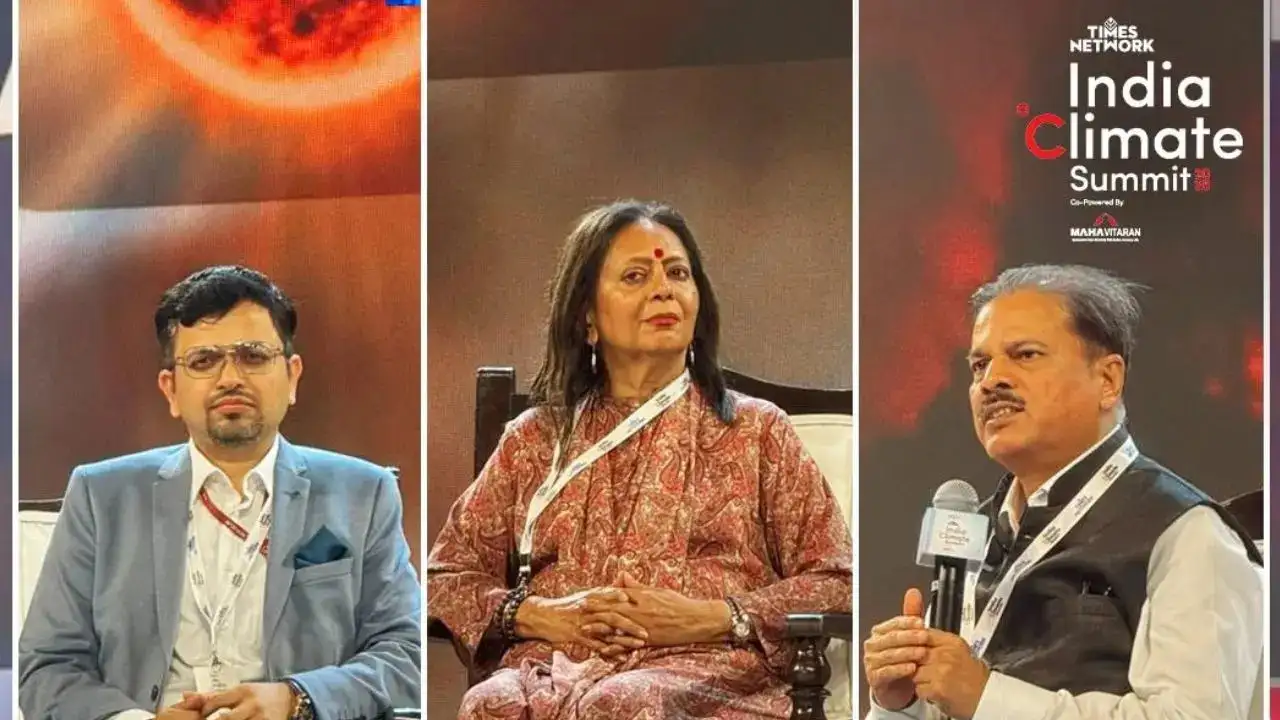
India Climate Summit 2025
At Times Network's India Climate Summit this year, a panel titled “Weathering Heat and Hazards” brought into sharp focus a challenge that is no longer seasonal but creeping into our everyday lives. The rising heat and its unseen dangers.
The discussion featured three experts with diverse expertise but one common concern: India is not adequately prepared to deal with the rising impact of heat.
Dr Harshal Ramesh Salve, Additional Professor at the Centre for Community Medicine, AIIMS, New Delhi, pointed out that a heat wave is just the visible tip of a much larger crisis. “We are already seeing strokes and deaths. There’s morbidity that we don’t even calculate. The cost we are paying, in terms of human health, is largely unknown.” He explained how heat stress, which is basically the physical and physiological strain heat puts on the human body, affects especially those with pre-existing conditions like COPD and other respiratory or cardiovascular issues.
Dr Salve called for a better understanding of heat-related risks and identification of vulnerable populations. “We need to revive traditional practices to stay cool. Our previous generations managed heat without air conditioners. There’s wisdom there that we have ignored for the longest time.” Most importantly, he urged for formal heat adaptation plans at local and national levels, before the damage deepens.
Dr Mrutyunjay Mohapatra, Director General of Meteorology at IMD who is widely known as India’s Cyclone Man, highlighted how weather patterns have become increasingly erratic. “Earlier, heat waves were mostly seen in May and June. Now, they begin as early as February. There is no defined rhythm to rainfall, thunderstorms or lightning anymore and this unpredictability is disturbing.”
Karuna Singh, Regional Director, Asia, Earth Day Network, added a layer of climate consciousness to the conversation. “When it gets hot, our immediate reaction is to install an AC. But that only worsens the problem.” Singh recommends simpler, more climate-conscious solutions like painting rooftops with white choona instead of synthetic white paint, which contains plastic and traps heat.
She firmly believes that building climate awareness must begin in schools. “We need to create climate warriors early on. If we don’t make climate education mandatory, the future will be grim.”
The conversation was a powerful reminder that heat is no longer an occasional discomfort, it’s a public health and environmental emergency. And while infrastructure and science are critical, so is changing the way we think, live and adapt.
The time to act was yesterday. The next best time is NOW.
